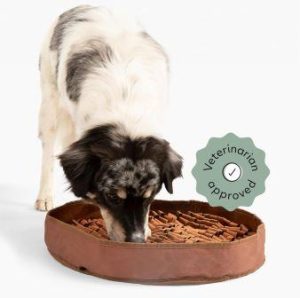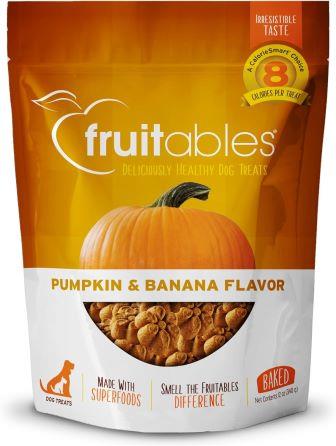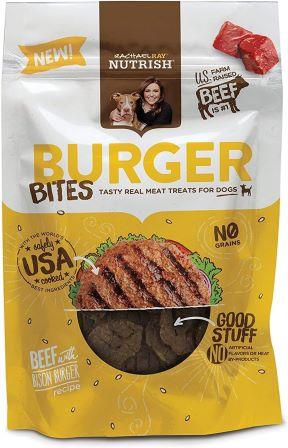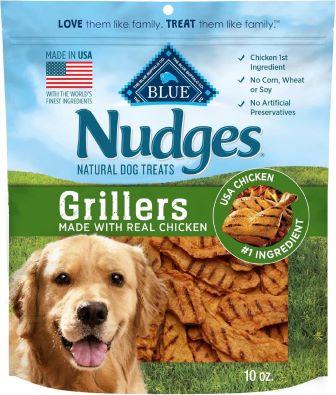Welcome to our guide on dogs and pineapple!
 If you’ve ever wondered whether your furry friend can enjoy this tropical fruit, you’ve come to the right place.
If you’ve ever wondered whether your furry friend can enjoy this tropical fruit, you’ve come to the right place.
In this article, we will explore the safety and benefits of feeding pineapple to dogs, as well as provide helpful guidelines on how to introduce it into their diet.
Main Points
- Pineapple can be safely consumed by dogs in moderation.
- Feeding pineapple to your dog can provide various health benefits.
- It’s important to be aware of the potential risks and introduce pineapple gradually.
- Consult your veterinarian before making any significant changes to your dog’s diet.
- Pineapple is just one of many dog-friendly fruits you can offer your furry friend.
Dogs and Pineapple – Are They Compatible?
 In this section, we will explore the compatibility of dogs and pineapple. We will discuss the nutritional value of pineapple for dogs and highlight its potential health benefits.
In this section, we will explore the compatibility of dogs and pineapple. We will discuss the nutritional value of pineapple for dogs and highlight its potential health benefits.
The Nutritional Value of Pineapple for Dogs
Pineapple is not only a delicious tropical fruit but can also be a nutritious addition to your dog’s diet. It is packed with essential vitamins and minerals that can support your furry friend’s overall health.
One of the key nutrients found in pineapple is Vitamin C, which plays a crucial role in boosting the immune system of dogs. As dogs cannot produce Vitamin C naturally, incorporating pineapple into their diet can help strengthen their immune response and protect against common illnesses.
Additionally, pineapple contains bromelain, an enzyme that aids in digestion. This enzyme can support your dog’s digestive system by breaking down proteins and improving nutrient absorption. If your dog experiences occasional digestive issues, incorporating pineapple into their meals can be beneficial.
Besides Vitamin C and bromelain, pineapple also provides essential minerals such as manganese and potassium, which are essential for maintaining healthy bodily functions in dogs. These minerals contribute to bone health, nerve function, and muscle contractions.
Adding pineapple to your dog’s diet can provide a natural boost to their immune system and aid in digestion. It’s a tasty and nutritious treat that can benefit your furry friend in many ways.
Benefits of Pineapple for Dogs
 In this section, we will explore the various benefits that pineapple can offer to dogs. From promoting digestion to boosting the immune system, we will discuss how pineapple can contribute to your dog’s overall well-being.
In this section, we will explore the various benefits that pineapple can offer to dogs. From promoting digestion to boosting the immune system, we will discuss how pineapple can contribute to your dog’s overall well-being.
1. Digestive Health
Pineapple contains an enzyme called bromelain, which aids in digestion by breaking down proteins. This can be especially beneficial for dogs with sensitive stomachs or digestive issues. Adding pineapple to your dog’s diet in moderation can help improve digestion and alleviate gastrointestinal discomfort.
2. Anti-Inflammatory Properties
Bromelain, the enzyme found in pineapple, also has anti-inflammatory properties. These properties can be beneficial for dogs suffering from inflammatory conditions such as arthritis. The natural anti-inflammatory effects of pineapple can help reduce pain and swelling, improving your dog’s mobility and overall comfort.
3. Immune System Support
Pineapple is rich in vitamin C, a powerful antioxidant that supports a healthy immune system. Vitamin C helps protect your dog’s cells from damage and boosts their natural defense against infections and diseases. Including pineapple in your dog’s diet can provide a natural immune system boost.
4. Skin and Coat Health
The vitamin C and other antioxidants present in pineapple can contribute to maintaining healthy skin and a shiny coat for your dog. These nutrients help promote collagen production, which is essential for skin and coat health. Regularly including pineapple in your dog’s diet may result in improved skin condition and a lustrous coat.
These are just a few of the many benefits that pineapple can offer to dogs. However, it’s important to note that every dog is unique, and their dietary needs may vary. As with any new addition to their diet, it’s best to introduce pineapple gradually and monitor your dog’s response. If you have any concerns or questions, consult with your veterinarian.
Risks of Feeding Pineapple to Dogs
 While pineapple can be a healthy addition to your dog’s diet, it’s important to be aware of the potential risks involved. Here, we will address these risks and provide guidelines on how to feed pineapple to your dog safely.
While pineapple can be a healthy addition to your dog’s diet, it’s important to be aware of the potential risks involved. Here, we will address these risks and provide guidelines on how to feed pineapple to your dog safely.
Allergic Reactions
Some dogs may have allergies or sensitivities to certain fruits, including pineapple. Signs of an allergic reaction in dogs can include itching, swelling, digestive upset, or difficulty breathing. If you notice any of these symptoms after feeding your dog pineapple, it’s important to consult your veterinarian.
High in Sugar
Pineapple contains natural sugars, which can contribute to weight gain and dental issues in dogs if consumed in excess. Moderation is key when feeding pineapple to your furry friend. Always remember to consider your dog’s size and overall dietary needs.
Gastrointestinal Upset
Pineapple is a fibrous fruit, and too much fiber can cause gastrointestinal upset in dogs. It’s essential to introduce pineapple slowly into your dog’s diet to allow their digestive system to adjust. Keeping an eye out for any signs of vomiting, diarrhea, or abdominal discomfort is crucial.
Bromelain Enzyme
Pineapple contains an enzyme called bromelain, which may cause gastrointestinal irritation in some dogs. This enzyme can break down proteins and affect the absorption of certain medications. If your dog is on any medications or has a sensitive stomach, it’s best to consult with your veterinarian before incorporating pineapple into their diet.
| Risks of Feeding Pineapple to Dogs | Guidelines |
|---|---|
| Allergic Reactions | Watch for signs of allergies or sensitivities after feeding pineapple. Consult your veterinarian if any symptoms occur. |
| High in Sugar | Feed pineapple in moderation to prevent weight gain and dental issues. Consider your dog’s size and overall dietary needs. |
| Gastrointestinal Upset | Introduce pineapple gradually to avoid digestive upset. Monitor your dog for any signs of vomiting, diarrhea, or abdominal discomfort. |
| Bromelain Enzyme | If your dog is on medications or has a sensitive stomach, consult with your veterinarian before introducing pineapple into their diet. Watch for any gastrointestinal irritation. |
Safe Fruits for Dogs – Beyond Pineapple
 Pineapple is not the only fruit that dogs can enjoy. In addition to pineapple, there are several other safe fruits that can be added to your dog’s diet. These dog-friendly fruits provide a range of nutritional benefits and can be a tasty and healthy treat for your furry friend.
Pineapple is not the only fruit that dogs can enjoy. In addition to pineapple, there are several other safe fruits that can be added to your dog’s diet. These dog-friendly fruits provide a range of nutritional benefits and can be a tasty and healthy treat for your furry friend.
When introducing fruits to your dog’s diet, it’s important to consider their safety and suitability. Some fruits may pose risks to dogs, such as grapes and raisins, which can be toxic and should be avoided. However, there are many fruits that are safe for dogs and can be incorporated into their meals or used as snacks.
The following are some examples of safe fruits for dogs:
- Apples: Rich in vitamins and fiber, apples can be a crunchy and nutritious addition to your dog’s diet. Make sure to remove the seeds and core, as they can be choking hazards.
- Blueberries: Packed with antioxidants, blueberries are a great source of vitamins and can support your dog’s immune system. They can be fed fresh or frozen.
- Bananas: Bananas are a good source of potassium and can provide a natural energy boost for your dog. They can be fed as a whole, sliced, or mashed.
- Strawberries: High in vitamin C and fiber, strawberries can be a sweet and refreshing treat for your dog. Be sure to remove the stems and leaves before feeding.
 It’s important to introduce these fruits gradually and in moderation, especially if your dog is not used to consuming fruits. Start with small amounts and monitor your dog’s reaction to ensure they tolerate the fruits well.
It’s important to introduce these fruits gradually and in moderation, especially if your dog is not used to consuming fruits. Start with small amounts and monitor your dog’s reaction to ensure they tolerate the fruits well.
Remember to always consult with your veterinarian before making any significant changes to your dog’s diet or introducing new foods.
Introducing Pineapple to Your Dog
If you’re considering adding pineapple to your dog’s diet, it’s important to introduce it gradually. Abrupt dietary changes can upset your dog’s stomach and potentially lead to digestive issues. To ensure a smooth transition, follow these step-by-step instructions:
- Consult with your veterinarian: Before adding pineapple or any new food to your dog’s diet, it’s always a good idea to consult with your veterinarian. They can provide personalized advice based on your dog’s specific needs and health conditions.
- Start with small portions: Begin by offering your dog a small amount of pineapple as a treat or mixing it into their regular food. Monitor your dog’s response and observe for any signs of discomfort or allergies.
- Observe your dog’s digestion: Pineapple contains an enzyme called bromelain, which can aid in digestion. However, in excess, it can cause loose stools in dogs. Pay attention to your dog’s stool consistency when introducing pineapple and adjust the amount accordingly.
- Gradually increase the amount: If your dog tolerates pineapple well, you can gradually increase the portion size. Remember to do so in moderation and avoid overfeeding, as excessive amounts of pineapple can lead to an upset stomach.
- Monitor for allergies: As with any new food, there is a possibility of your dog being allergic to pineapple. Watch for signs of an allergic reaction such as itching, skin irritation, or gastrointestinal distress. If you notice any adverse symptoms, discontinue feeding pineapple and consult your veterinarian.
 By following these guidelines, you can safely introduce pineapple into your dog’s diet and assess their individual tolerance and preferences.
By following these guidelines, you can safely introduce pineapple into your dog’s diet and assess their individual tolerance and preferences.
“Introducing pineapple to your dog’s diet should be done gradually, keeping a close eye on their digestion and overall well-being. Consulting with your veterinarian is always a wise decision to ensure the best nutrition for your furry friend.”
| Pineapple Introduction Guidelines | |
|---|---|
| Consult with your veterinarian | ✔️ |
| Start with small portions | ✔️ |
| Observe your dog’s digestion | ✔️ |
| Gradually increase the amount | ✔️ |
| Monitor for allergies | ✔️ |
Healthy Snacks for Dogs – Pineapple Edition
 Pineapple can be a healthy and refreshing treat for your dog. Not only does it provide essential nutrients, but it also adds variety to their diet. Here are some creative ways to incorporate pineapple into homemade dog treats and snacks:
Pineapple can be a healthy and refreshing treat for your dog. Not only does it provide essential nutrients, but it also adds variety to their diet. Here are some creative ways to incorporate pineapple into homemade dog treats and snacks:
Pineapple Frozen Yogurt Bites
If your dog enjoys frozen treats, try making pineapple frozen yogurt bites.
“My dog absolutely loves these pineapple frozen yogurt bites! They’re a perfect summer snack.” – Emily, dog owner
Ingredients:
- 1 cup plain yogurt
- 1 cup diced pineapple
- 1 tablespoon honey (optional)
Instructions:
- In a blender or food processor, puree the diced pineapple until smooth.
- In a mixing bowl, combine the pineapple puree, plain yogurt, and honey (if using).
- Spoon the mixture into silicone molds or ice cube trays.
- Freeze for at least 3 hours or until firm.
- Serve to your pup as a refreshing snack!
Pineapple and Turkey Jerky
If your dog enjoys chewy treats, try making pineapple and turkey jerky.
“I make these pineapple and turkey jerky treats for my dog, and he goes crazy for them! They’re a great source of protein and a fun alternative to store-bought treats.” – Sarah, dog owner
Ingredients:
- 1 cup diced pineapple
- 1 cup lean turkey breast, thinly sliced
- 1 tablespoon olive oil
Instructions:
- Preheat your oven to 200°F (93°C) and line a baking sheet with parchment paper.
- Blot the diced pineapple with paper towels to remove excess moisture.
- Place the pineapple and turkey slices in a mixing bowl.
- Add the olive oil and toss until the pineapple and turkey are coated.
- Arrange the pineapple and turkey slices on the prepared baking sheet, making sure they are not overlapping.
- Bake for 2-3 hours or until the jerky is crispy and fully dried.
- Allow the jerky to cool completely before serving to your dog.
| Treat Name | Ingredients | Instructions |
|---|---|---|
| Pineapple Frozen Yogurt Bites | 1 cup plain yogurt 1 cup diced pineapple 1 tablespoon honey (optional) |
In a blender or food processor, puree the diced pineapple until smooth. In a mixing bowl, combine the pineapple puree, plain yogurt, and honey (if using). Spoon the mixture into silicone molds or ice cube trays. Freeze for at least 3 hours or until firm. Serve to your pup as a refreshing snack! |
| Pineapple and Turkey Jerky | 1 cup diced pineapple 1 cup lean turkey breast, thinly sliced 1 tablespoon olive oil |
Preheat your oven to 200°F (93°C) and line a baking sheet with parchment paper. Blot the diced pineapple with paper towels to remove excess moisture. Place the pineapple and turkey slices in a mixing bowl. Add the olive oil and toss until the pineapple and turkey are coated. Arrange the pineapple and turkey slices on the prepared baking sheet, making sure they are not overlapping. Bake for 2-3 hours or until the jerky is crispy and fully dried. Allow the jerky to cool completely before serving to your dog. |
Remember, moderation is key when feeding pineapple treats to your dog. Always consult with your veterinarian before introducing any new foods into your dog’s diet, especially if they have any underlying health conditions. Enjoy making these pineapple-based snacks for your furry friend!
Conclusion
 In summary, can a dog eat pineapple? Yes, dogs can safely consume pineapple as part of a balanced diet. Pineapple offers numerous health benefits for dogs, including aiding digestion, providing essential nutrients, and boosting the immune system. However, it’s crucial to introduce pineapple gradually and in moderation to avoid potential digestive issues.
In summary, can a dog eat pineapple? Yes, dogs can safely consume pineapple as part of a balanced diet. Pineapple offers numerous health benefits for dogs, including aiding digestion, providing essential nutrients, and boosting the immune system. However, it’s crucial to introduce pineapple gradually and in moderation to avoid potential digestive issues.
Before adding pineapple or any new food to your dog’s diet, consult with your veterinarian. They can provide personalized guidance based on your dog’s breed, age, size, and overall health. Your veterinarian will help determine the appropriate portion size and frequency of pineapple consumption to ensure your dog’s well-being.
Remember, while pineapple can be a tasty and nutritious treat for your furry friend, it should never replace a complete and balanced dog food. It’s always best to prioritize a high-quality dog food that meets your dog’s nutritional requirements. With proper guidance and moderation, you can safely incorporate pineapple into your dog’s diet and offer them a healthy and enjoyable snack option.
FAQ
Can a dog eat pineapple?
Yes, dogs can eat pineapple in moderation. However, it’s important to introduce this fruit gradually into your dog’s diet and monitor their reaction. Consult your veterinarian if you have any concerns.
Are dogs and pineapple compatible?
Dogs and pineapple can be compatible. Pineapple is a nutritious fruit that offers various health benefits for dogs. However, it’s important to feed pineapple in appropriate amounts and ensure it doesn’t cause any digestive issues for your furry friend.
What are the benefits of pineapple for dogs?
Pineapple can provide several benefits to dogs. It contains vitamins, minerals, and enzymes that can aid digestion, boost the immune system, and improve skin and coat health. Additionally, pineapple may have anti-inflammatory properties.
What are the risks of feeding pineapple to dogs?
While pineapple is generally safe for dogs, there are risks to be aware of. Pineapple contains high amounts of natural sugars and citric acid, which can cause digestive issues and tooth decay in some dogs. It’s crucial to feed pineapple in moderation and monitor your dog for any adverse reactions.
What are other safe fruits for dogs?
Apart from pineapple, there are various safe fruits for dogs to enjoy. Some dog-friendly fruits include apples, bananas, blueberries, strawberries, and watermelon. Remember to remove any seeds, pits, or rinds and feed fruits in moderation.
How should I introduce pineapple to my dog?
To introduce pineapple to your dog, start by offering small pieces as a treat or mixing it into their regular meals. Watch for any signs of digestive upset or allergies. Gradually increase the amount over time while monitoring your dog’s response.
Can I use pineapple to make healthy snacks for my dog?
Yes, pineapple can be incorporated into healthy snacks for dogs. You can use fresh or frozen pineapple to make homemade dog treats or add it to recipes for frozen treats, smoothies, or pup-friendly fruit salad. Just be mindful of any additional ingredients and consult your vet for specific dietary recommendations.
Can dogs eat pineapple every day?
Dogs should not eat pineapple every day. While it can be a healthy addition to their diet, it should be given in moderation to prevent digestive issues and excessive sugar intake. It’s best to consult your veterinarian for personalized advice on your dog’s nutritional needs.







































